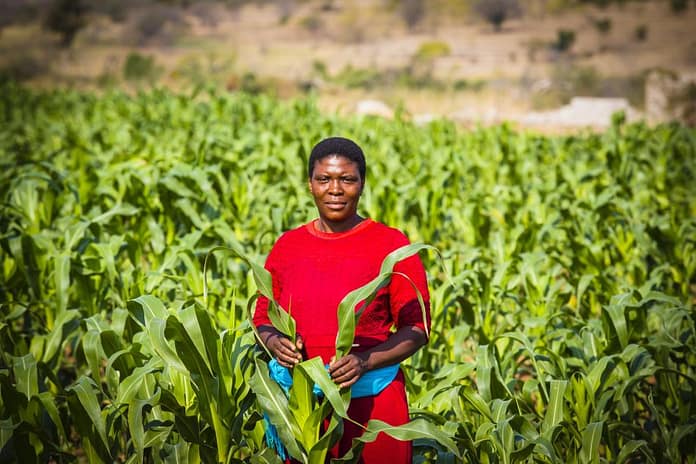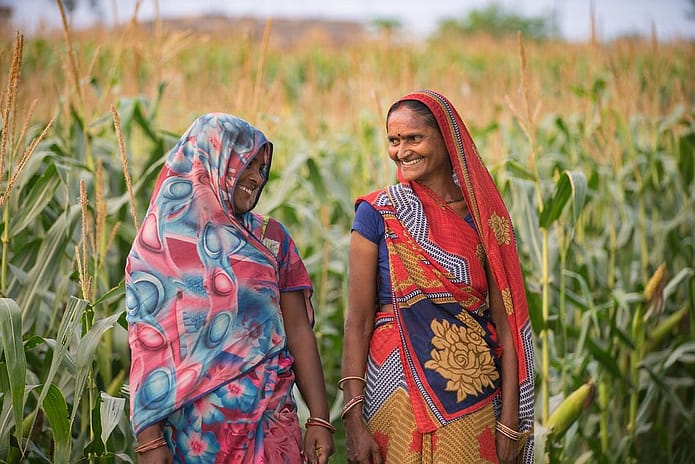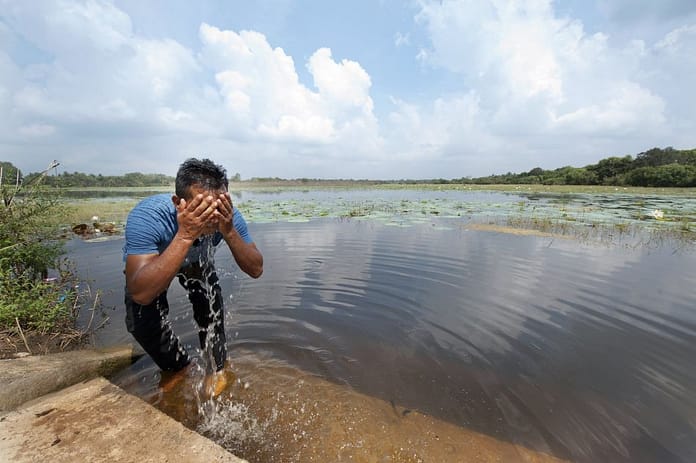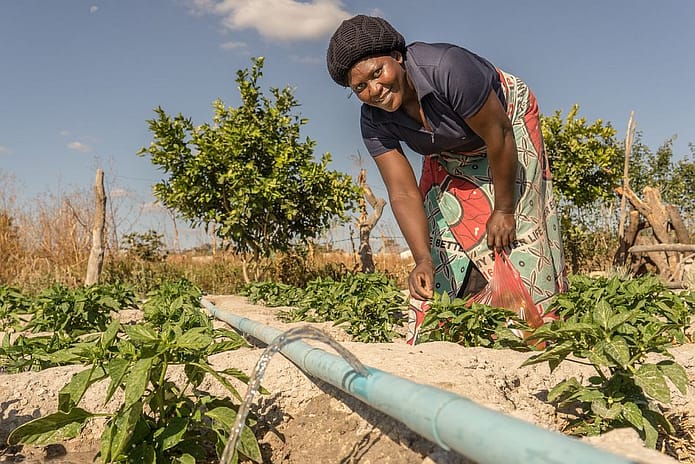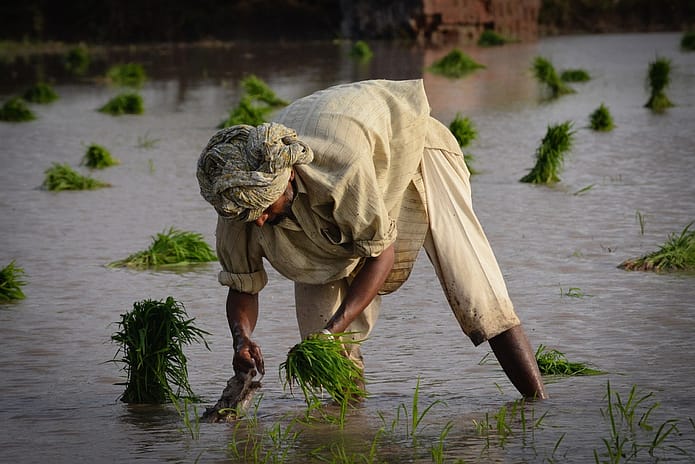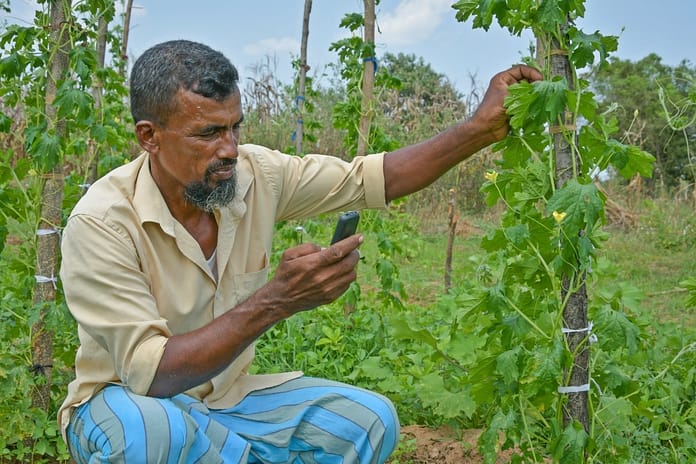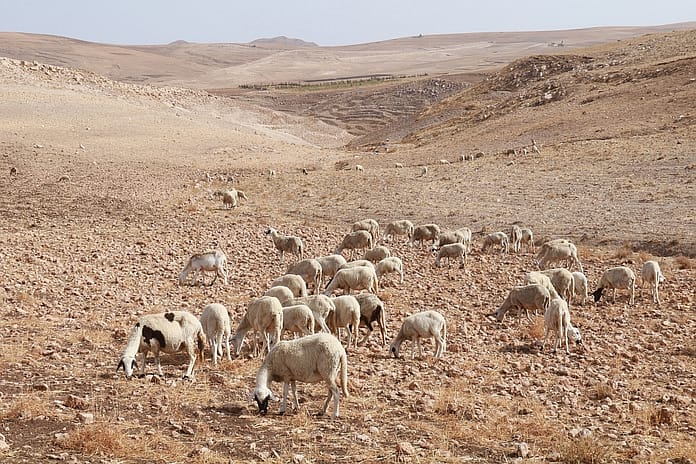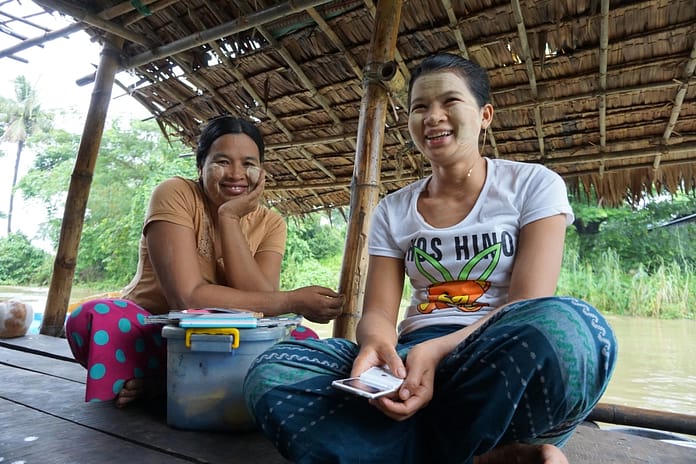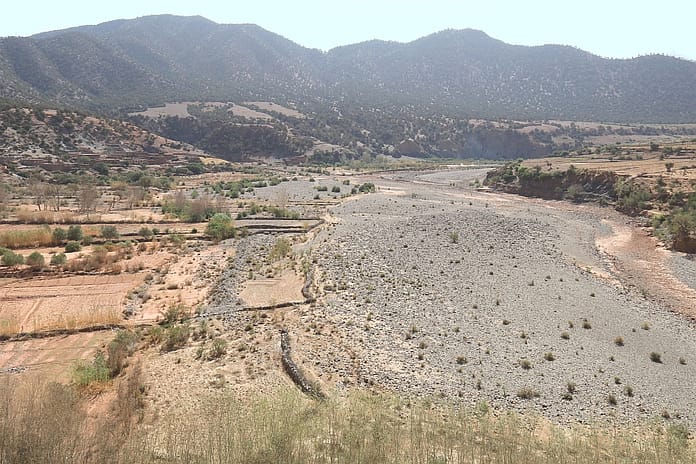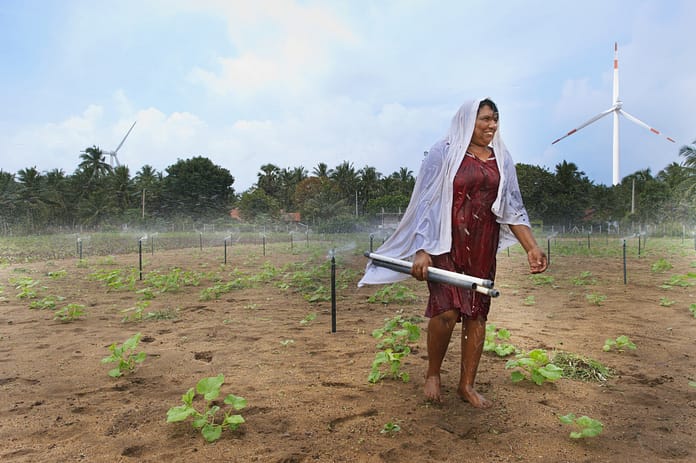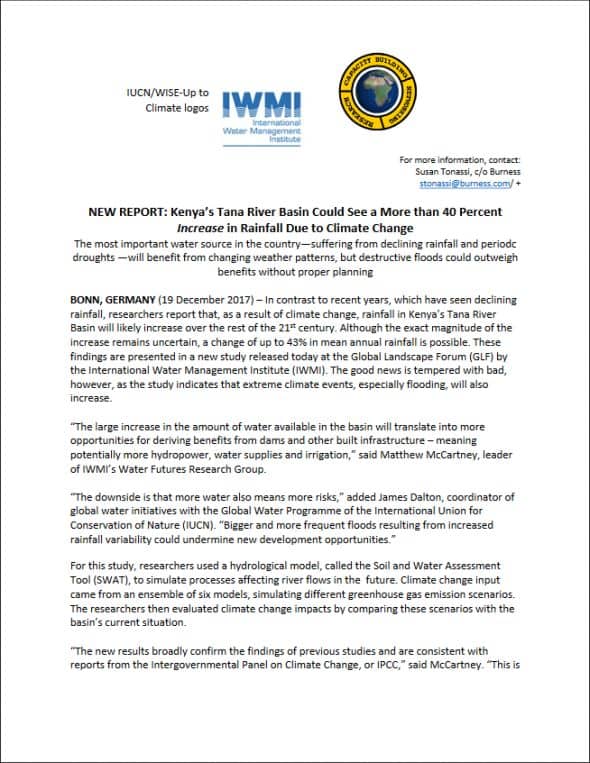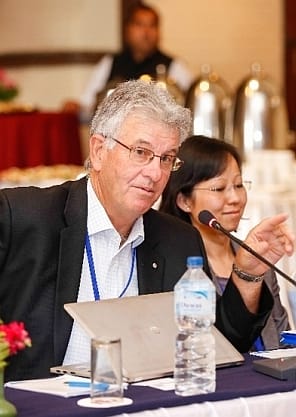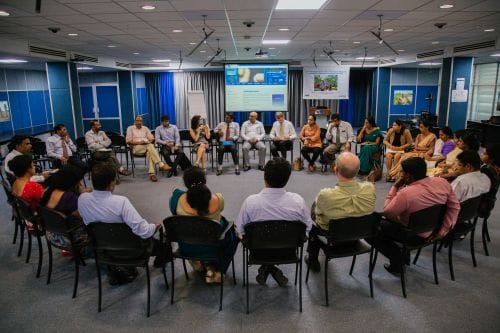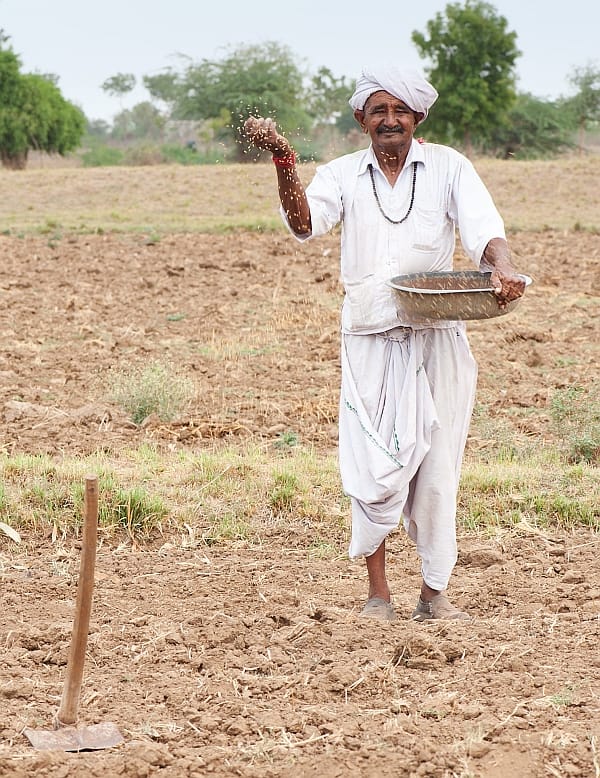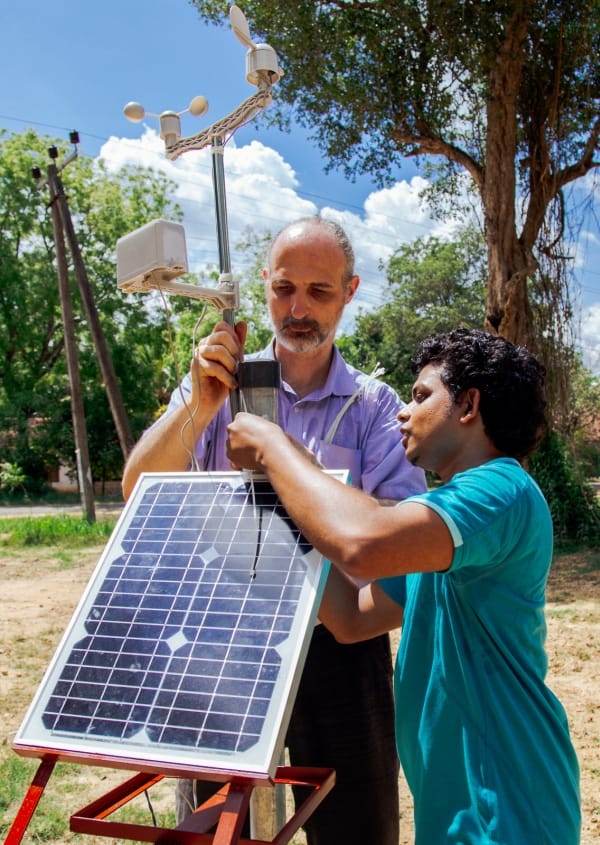IWMI installs open source hardware mobile weather stations in Nachchaduwa to increase rainfall data availability and improve tank management
Between April 18-23, 2016, IWMI along with the Nachchaduwa Irrigation Division of the Irrigation Department of Anuradhapura District in Sri Lanka, installed open source hardware mobile weather stations in Anuradhapura (In the upper catchment of the Nachchaduwa reservoir) to record meteorological data. The stations are programmed to send alerts to the cellular phones of the reservoir manager when rainfall exceeds 10 mm/hr .As part of the visit, the team collected information pertaining to current reservoir management. In addition the team also initiated a dialogue for follow up visits through the course of the project.
Currently, the Department of Irrigation receives rainfall data once a day, as a daily average. This data is not sufficient during the Northeast monsoon seasons where data on hourly intensity of rainfall is needed to accommodate upstream runoff in the reservoir, to reduce damages from flooding. The weather stations provide timely data on rainfall intensity, which could potentially assist the Department of Irrigation to manage the reservoir better during intense rainfall.
This pilot project is funded through the Challenge Fund, awarded by the GFDRR-World Bank.

Yann Chemin (Consultant, and Former IWMI Researcher) and Lahiru Wijesinghe (Sri Lanka Institute of Information Technology—Malabe), who created the stations, are currently installing and activating these stations around Anuradhapura, so that their use may be tested during the next Northeast monsoon. Soumya Balasubramanya and Richard Hardy (former IWMI Consultant) has been studying the cost-effectiveness of the weather systems by comparing the costs of installation, repair and maintenance of the systems with the potential to reduce post-flood government expenditures on rehabilitation if timely rainfall data is used to manage the reservoir. Farah Ahmed and Aheeyar Mohammed have been working on connecting a community of professionals in Sri Lanka who are using similar technologies for managing natural disasters.



